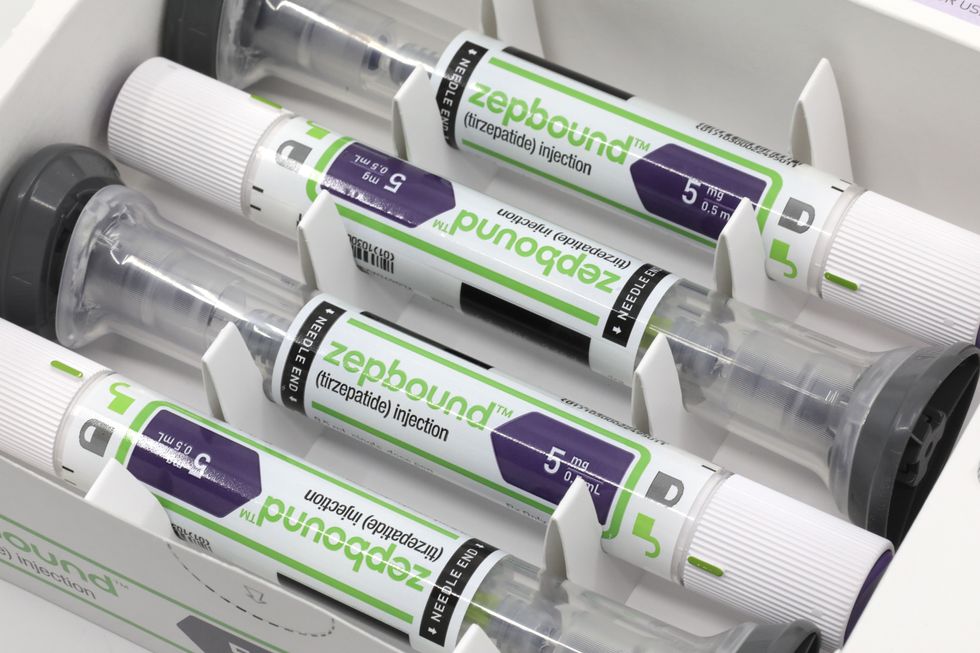Weight loss jabs could be key to shrinking breast cancer tumours as scientists discover dual benefit
Drugs such as Mounjaro are prescribed to diabetics on the NHS, but may assist in reducing tumours too, researchers have found
Don't Miss
Most Read
Latest
A weight loss drug has been found to dramatically reduce breast cancer tumour growth while still achieving significant weight loss, new findings indicate.
The research showed how increased fat loss can be connected to improved outcomes for cancer patients, indicating that weight loss drugs could yield a number of health benefits beyond shedding pounds.
The research, unveiled at ENDO 2025 in San Francisco, demonstrated that the anti-obesity drug Tirzepatide (sold in the UK as Mounjaro) cut both body weight and tumour volume in laboratory mice.
Scientists discovered the medication reduced obesity by approximately 20 per cent through fat mass reduction, while simultaneously shrinking breast tumours.

Scientists found the drug shrunk breast cancer tumours in mice
|GETTY
These preliminary findings suggest the next-generation weight-loss drugs could provide unexpected dual benefits for patients, potentially transforming treatment approaches for obesity-related cancers.
The research team from the University of Michigan presented their findings at the Endocrine Society's annual conference, where they detailed how Tirzepatide targets both GLP-1 and GIP receptors.
The study involved 16 mice fed a high-fat diet to induce obesity before being treated with either Tirzepatide or placebo injections every other day for 16 weeks.
The medication achieved a 20 per cent reduction in both body weight and body fat, matching the weight loss typically seen in women taking the drug.
LATEST DEVELOPMENTS
The weight reduction stemmed primarily from decreased adipose tissue mass, with notable reductions in fat deposits compared to control subjects, the authors found.
"Obesity is a significant risk factor for breast cancer, and while it is very preliminary data, our studies in mice suggest that these new anti-obesity drugs may be a way to reduce obesity-associated breast cancer risk or improve outcomes," said study author Amanda Kucinskas, a PhD candidate at the University of Michigan.
Previous research has established that obesity leads to poorer breast cancer outcomes compared to those who aren't obese, and that weight reduction can improve these outcomes.
However, conventional weight-loss methods face numerous obstacles, making the potential dual action of Tirzepatide particularly significant for addressing obesity-related cancer risks.

Next-generation weight-loss drugs could provide unexpected dual benefits for patients
|GETTY
The nine-week-old C57BL/6 mice were housed in warm conditions and fed a 40 per cent high-fat diet to induce obesity before beginning treatment at 32 weeks of age. Tumour volumes were measured twice weekly throughout the study period.
By the study's conclusion, tumour volume showed significant correlation with body weight, total adipose mass, and hepatic fat storage.
"While these are very preliminary results, they suggest that this new anti-obesity drug may also have a beneficial impact on breast cancer outcomes," Kucinskas noted.
Researchers are conducting ongoing studies in collaboration with Dr Steve Hursting's laboratory at the University of North Carolina at Chapel Hill to distinguish between the weight-loss effects and tumour-specific impacts of Tirzepatide.











